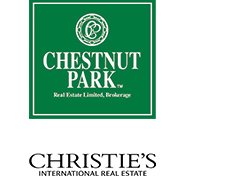Market Report
Toronto Real Estate Market Update – August 2017
There were no surprises in the market data for the month of August. It was expected that as compared to last year the number of reported sales would be down, and that the average price from residential resale properties in the greater Toronto area would once again decline.
There were 6,357 properties reported sold in August, almost 35 percent fewer than the 9,748 properties reported sold last August. It should be remembered the sales reported last August were record breaking in a record breaking year. Last year 113,044 properties changed hands, by far more than any other year in Toronto real estate record keeping. The good news is that notwithstanding the size of the decline it was less dramatic than the months of June and July.

The average sale price came in at $732,292, 3 percent higher than the average sale price of $710,978 achieved in August last year. Although August’s average sale price for all properties sold in the greater Toronto area is substantially less than the record breaking average sale prices achieved in April of this year, it would appear that the decline in prices may have plateaued. Throughout the month weekly average sale prices were consistently around $730,000.
In the City of Toronto detached properties have seen the sharpest decline in sales volume and in average sale prices. Sales volume on a year-over-year basis is down by almost 35 percent. (It should be noted that in the 905 region sales volume is down by almost 42 percent). Average sale prices were off by just over 1 percent. This means that on a statistical basis detached homes have given up all the price gains achieved leading up to the month of April and the province’s announcement that it would implement a foreign buyer’s tax of 15 percent of the sale price of properties.
It is not clear if all price gains achieved by detached properties have been lost. There just simply is not enough data to make this definitive determination. In August 132 properties having a sale price of $2 Million or more were reported sold. Last August 233 properties in this category were reported sold. Almost all of these properties were detached homes. Clearly when fewer properties in the highest price categories are selling, the over-all average sale price will decline. It is not uncommon to see fewer high end sales in August. The key question is were there fewer sales because these properties were not selling, or was it due to sellers not putting these properties on the market, and if they did, continued to hold out for higher prices. September’s data will go a long way in answering that question.
Although it is taking longer for properties to sell, the pace of sales was still brisk in August. All sales took place in only 23 days. Last year all sales took place in 18 days. Even detached properties in Toronto’s central core, which sold for an average sale price of $2,113,130, all sold in only 26 days. Semi-detached properties continued to move briskly selling in just 20 days. In the case of semi-detached properties in Toronto’s east-end districts (Riverdale, Leslieville, Beaches) sales took place in only 13 days on average and for sale prices that exceeded the asking price on average by about 104 percent.
Although condominium apartments sales have slowed year-over-year, condominium apartments average sale prices have not. Last August the average sale price for condominium apartments in Toronto’s central districts was a mere $493,324. This August that same apartment will cost a buyer $600,781, an increase of almost 22 percent. In fact, the average sale price for condominium apartments increased throughout the entire City of
Toronto by more than 20 percent in August. Sales on the other hand were down by about 25 percent.
The decline in condominium apartment sales in August is due to two factors. Rising prices have made some units inaccessible to a growing group of first-time buyers, while shrinking inventories have lessened the choice available to those buyers that can afford to purchase Toronto’s ever more expensive condominium apartments. In August there were only 2,353 units available for sale. Last August there were 2,950, a decline of 21 percent. This is contrary to the overall market trend which sees listings of all properties up an eye-popping 65 percent compared to the same period last year.
Listing generally are beginning to decline. In August only 11,523 new properties became available for sale, a decline of almost 7 percent compared to the 12,346 properties that became available last year. If this trend continues and if sales pick up there will be a rebound in average sale prices, not to the absurd price increases that were taking place in April, but annualized increases of 5 to 7 percent which are healthy and sustainable.
September’s performance will be a crucial month in providing some guidance as to how quickly the market will begin to see an increase in activity and healthy increases in average sale prices. Now that two quarter point interest rate hikes have been factored into the market, it will simply be matter of seeing when buyers will take their finger off the pause button. The fundamentals in the Toronto and area market remain sound and are growing stronger. Employment is growing, high levels of immigration to the region continue, consumer confidence is strong, and notwithstanding two interest rate hikes, by historical standards rates continue to remain low. All these factors point to a real estate market that should be stronger than what we are currently experiencing.




